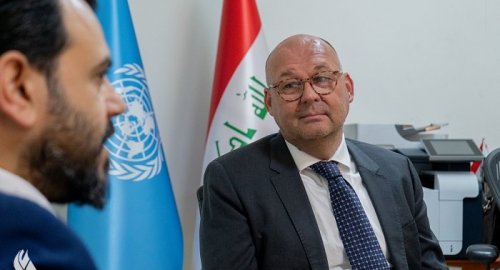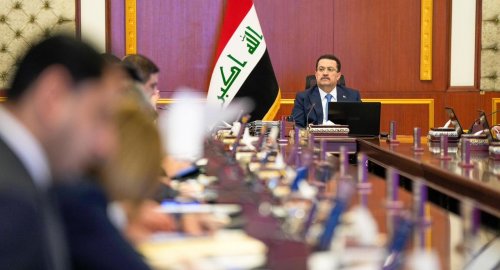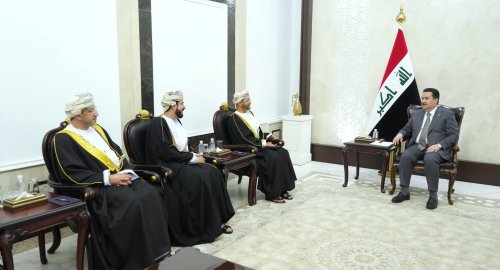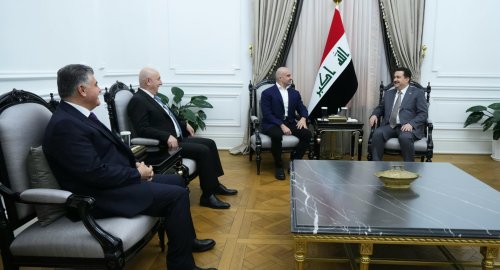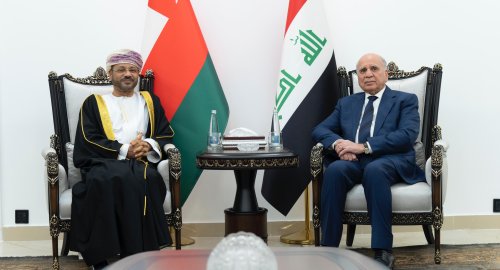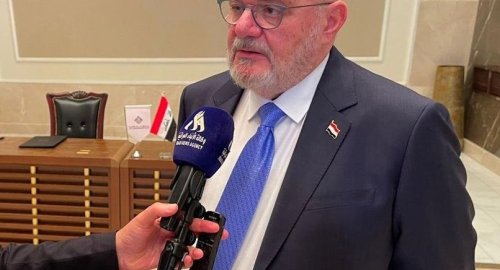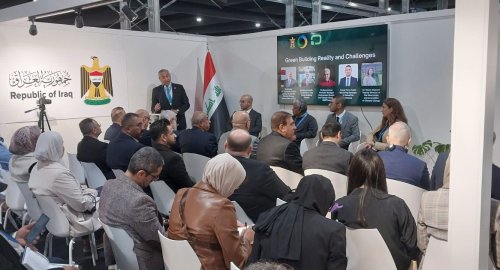
Iraq announces the launch of Green Building Council

- 21-11-2024, 10:52
Baghdad-INA
The Iraqi delegation participating in the Conference of the Parties (COP29), held in Azerbaijan, announced today, Thursday, the launch of the Iraqi Green Building Council, in implementation of the directives of Prime Minister Mohammed Shiaa Al-Sudani, while emphasizing that it is a strategic step towards achieving sustainable development and strengthening environmental and economic efforts.
The technical undersecretary of the Ministry of Environment, head of the Iraqi delegation, Jassim al-Falahi, told the Iraqi News Agency (INA): “The ministry is ready to support the ambitious Iraqi Green Building Council project,” he said, praising ”the efforts of the private sector in adopting environmentally friendly construction methods.”
He added that "the work accomplished on the sidelines of the conference reflects Iraq's commitment to achieving the goals of the Green Growth Strategy and the National Development Plan, in a way that enhances its environmental and economic commitments," noting that "the Iraqi government played a pivotal role in preparing the Iraqi Green Building Standard, through close cooperation with government agencies and the private sector."
Jassim al-Falahi continued that "these efforts aim to develop standards that contribute to reducing environmental costs and energy consumption, and improving the quality of life."
The head of the delegation explained that “green building represents a global trend that seeks to achieve environmental sustainability through the design of housing units and facilities that are efficient in consuming resources, such as energy and water,” indicating that “statistics indicate that lighting consumes more than 15% of total electrical energy, while air conditioning and water heating systems constitute between 60% and 75% of energy consumption during the summer and winter seasons, which highlights the need to adopt innovative building methods that reduce this depletion.”
“Traditional construction causes the depletion of natural resources and increases carbon emissions due to the use of inefficient materials and techniques, which leads to high operating and maintenance costs, in addition to negative impacts on public health,” he said.
For his part, Ibrahim Al-Sudani, a member of the Iraqi permanent negotiating delegation for climate issues, explained to the Iraqi News Agency (INA) that “the establishment of the Green Building Council is a step that corrects the course of traditional construction processes that led to high energy demand, and the establishment of the council supports Iraq's negotiating position and its commitments during the NDC paper.”
The United Nations Development Program (UNDP) representative, Mamnur Rashid, praised the Iraqi government's role in supporting sustainable environmental trends, telling the Iraqi News Agency (INA), “This step is strategic at the national level and reflects Iraq's commitment to making the environment a key pillar in its future policies.”
“This first step of its kind in Iraq will bring about a fundamental change in the construction sector,” Khalid al-Jabri, president of Aswal Foundation for Economic and Sustainable Development, told the Iraqi News Agency (INA).
“The adoption of green building techniques will reduce costs and boost the economy, in addition to reducing the overconsumption of electrical energy that contributes to unwanted emissions,” he said.
Al-Jaberi stressed that "this project will open the way for new industries in the construction sector, and will work to create a qualitative shift, making it more vibrant and less impactful on the environment."
The launch of the Iraqi Green Building Council represents a milestone in the country's efforts to achieve sustainable development that protects natural resources and enhances the national economy, by adopting advanced technologies and methods that keep pace with international standards in the field of construction.
First joint picture of Greenland Ice Sheet melting, ESA
- Multimedia
- 09:28
US Central Command: We killed ISIS terrorist leader Abu Yusuf in Syria
- International
- 24/12/20
Liverpool compete with Real Madrid to sign Olympique Lyonnais star
- Security
- 24/12/19
ISC, ADX discuss Strengthening Economic Ties
- Economy
- 24/12/16
Iraq assumes presidency of Arab Investment Company’s Executive Board
- Economy
- 24/12/17
